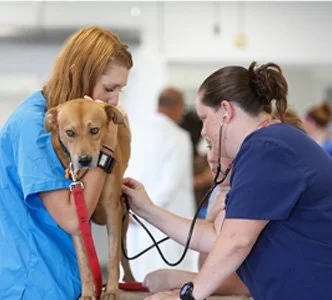Understanding the Educational Journey to Become a Veterinarian
- academic-prerequisites-to-become-a-veterinarian
- veterinary-school-and-what-it-involves
- clinical-experience-and-hands-on-training
- licensing-exams-and-certification
- real-world-case-how-dr-maya-became-a-veterinarian
- taking-your-next-step-toward-becoming-a-vet
1. Academic Prerequisites to Become a Veterinarian
Before diving into veterinary school, students must complete a bachelor’s degree—typically in biology, animal science, or a related field. During these undergraduate years, it’s essential to take core science courses such as organic chemistry, microbiology, and anatomy.
Many schools also value applicants with courses in humanities and communication, since veterinarians work closely with pet owners and need strong interpersonal skills. So if you're asking what education or training is needed to be a veterinarian, it all starts with a robust academic foundation in both science and communication.
2. Veterinary School and What It Involves
Once prerequisites are completed, the next step is applying to an accredited Doctor of Veterinary Medicine (DVM or VMD) program. Veterinary school typically takes four years to complete, blending classroom study with lab and clinical work. Courses dive deep into animal physiology, pharmacology, surgery, pathology, and zoonotic diseases.
Some schools, like Cornell and UC Davis, are known for their competitive programs. Admission is rigorous—most programs require a high GPA, GRE scores, letters of recommendation, and often experience in veterinary settings.
3. Clinical Experience and Hands-On Training
Hands-on learning is critical. During the third and fourth years of veterinary school, students spend most of their time in clinical rotations. These involve working in animal hospitals, shadowing experienced vets, and handling real cases under supervision. This stage is where theory becomes practice.
Volunteer work or internships with vet clinics during undergraduate years also significantly strengthen your vet school application. Exposure to large and small animal practice—or even exotic animals—can shape your specialization later.
4. Licensing Exams and Certification
After graduation, every aspiring vet must pass the North American Veterinary Licensing Examination (NAVLE). This exam evaluates knowledge of all areas of veterinary medicine. Without this license, practicing legally in the U.S. isn’t possible.
In addition to the NAVLE, some states require extra jurisprudence exams or continuing education for ongoing certification. Specializing in areas like surgery or dermatology may involve board certification through professional veterinary colleges.
5. Real-World Case: How Dr. Maya Became a Veterinarian
Dr. Maya knew she wanted to be a vet after volunteering at a shelter in high school. She earned her bachelor's in animal science while working part-time at a pet clinic. After graduating, she applied to multiple vet schools and was accepted into the University of Georgia’s DVM program. Four years later, she passed her NAVLE and began working at a mixed-animal practice in Colorado.
Her story reflects the structured, yet rewarding path many veterinarians follow. For those still wondering what education or training is needed to be a veterinarian, Dr. Maya's experience offers a real-life blueprint.
6. Taking Your Next Step Toward Becoming a Vet
Understanding what education or training is needed to be a veterinarian is the first step. If you're passionate about animal care, ready for academic rigor, and excited by hands-on experience, this could be your dream career.
Explore veterinary schools that align with your goals. Look for clinics offering volunteer opportunities. And when you're ready to take your commitment further, invest in tools and guidance that can help you thrive—whether it's exam prep, mentorship, or specialty courses. The veterinary world is challenging but deeply fulfilling, and the right resources can make your journey smoother and more successful.












